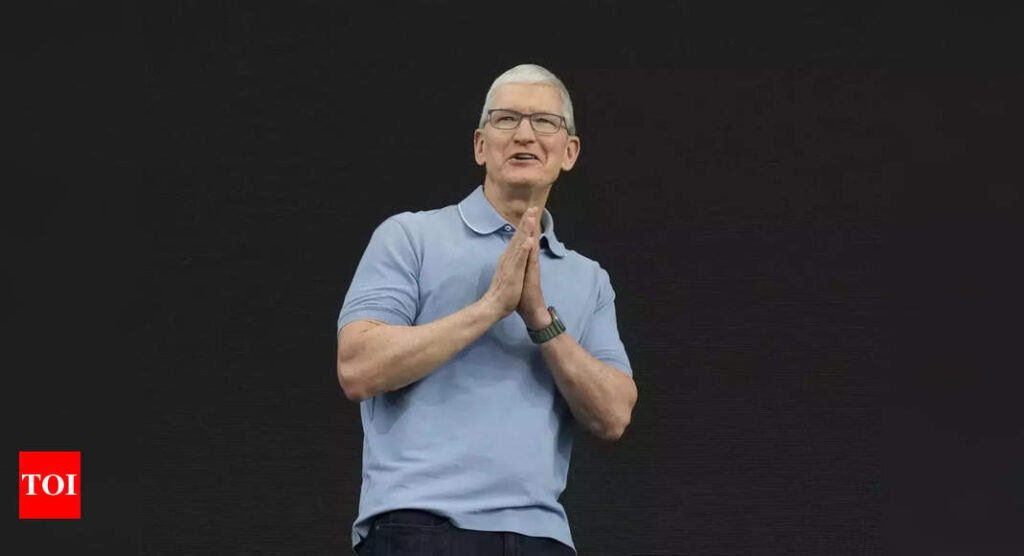[ad_1]
A recent report by The Information delves into how the alliance deteriorated over four years, leading to Goldman’s desire to extract itself from the partnership, revealing other intricate details of the deal.
If you thought you were the only one who was denied a credit card, then you will be surprised to know that the CEO of a trillion-dollar company was denied a credit card, that too, the card his company designed and conceptualised.
According to the report, Apple CEO Tim Cook faced difficulty getting approved for an Apple Card during the application process. This happened a few months before the card’s launch, and the issue had both engineers from Apple and Goldman Sachs working to resolve the issue.
Despite Cook’s strong financial credentials, his high-profile status made him a target for fraud. As a result, Goldman Sachs had to intervene and make a one-time exception to their underwriting system to issue the Apple Card to Cook, said people familiar with the issue.
Apple Card did not come easy; it constantly faced challenges due to differences between customer-oriented Apple and regulation-focused Goldman, according to the report.
Apple’s engineers were dissatisfied with a physical card, and complying with guidelines, including using the Mastercard logo, was a concern. Goldman’s proposal to use their Marcus brand was rejected. Apple’s ideas, such as aligning billing statements with the calendar month, were not feasible due to financial regulations. Cashback rewards were originally supposed to go directly into users’ accounts, but the Daily Cash feature was created as a workaround due to processing issues.
The Apple Card has around 10 million US users as of early 2023, and despite wanting to leave the consumer credit sector, Goldman Sachs may have to keep these customers as it is bound under contract, which ends in 2026.
American Express and JPMorgan Chase are unlikely to take over Goldman Sachs’ contract with Apple for the Apple Card. Instead, a less well-known bank may handle the $17 billion credit card portfolio while remaining invisible to customers, according to people familiar with the development. Further, Apple could also become more involved in underwriting, fraud prevention, and customer service.
[ad_2]
Source link











More Stories
Google Maps: Three privacy features coming to Google Maps on Android, iPhones
Most-Downloaded IPhone App: This Chinese app was the most-downloaded iPhone app in the US in 2023
Ukraine’s largest mobile operator goes offline for millions of users after cyber attack